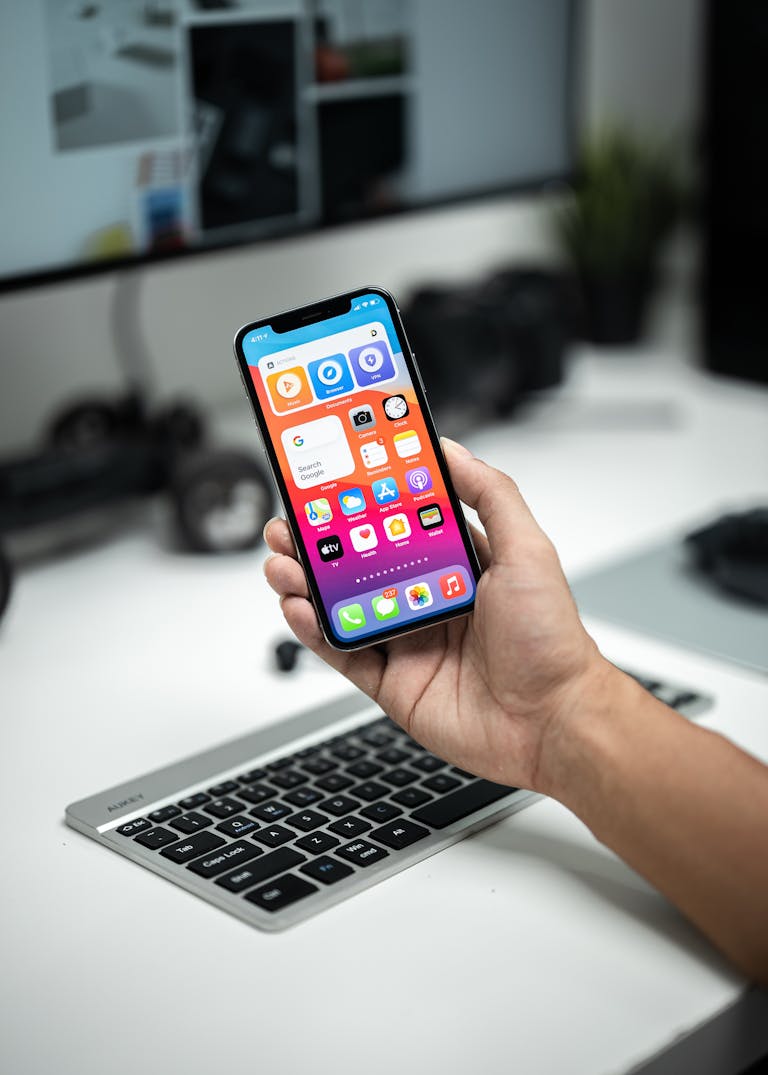Introduction
Your phone is a genius tool—but also your greatest distraction. If you constantly check it for notifications, scroll aimlessly, or feel drained after hours on apps, you’re not alone. The good news? You can take back control with a no-distraction phone routine that actually works—without ditching your smartphone altogether.

1. Understand Your Triggers
Start by identifying when and why you pick up your phone. Is it boredom? Stress? Habit? Once you know the triggers, you can build intentional habits to override them.
2. Set Designated Phone Times
Create “phone windows” in your day—like checking messages at 9am, 1pm, and 7pm. Outside of these windows, keep your phone out of reach to avoid mindless scrolling.
3. Use Focus or Do Not Disturb Modes
Modern smartphones have built-in tools like Focus Mode (iOS) or Digital Wellbeing (Android). Use them to silence non-essential apps and limit your attention to what matters.
4. Declutter Your Home Screen
Remove addictive apps like social media from your home screen. Keep only essential tools (e.g., calendar, notes, camera) visible to reduce temptation.
5. Create Charging Zones Away from Bed
Charge your phone outside the bedroom to break the cycle of late-night and first-thing-in-the-morning use. A simple alarm clock can replace your phone alarm.
6. Use an Actual Watch
Relying on your phone to check the time often leads to accidental deep dives into notifications. A classic wristwatch solves that.
7. Reward Your Focus
Link your no-phone time with positive rewards. Focused for 2 hours? Then you earn 15 minutes of mindful screen use—guilt-free.
Q1: What if I need my phone for work?
Use Focus Mode to allow only work-related apps. The goal isn’t no phone—just no distractions.
Q2: How can I stop checking social media so often?
Log out daily, remove them from your home screen, or use grayscale mode to make them less appealing.
Q3: Will this routine help with sleep?
Absolutely. Reducing screen exposure at night improves sleep quality and mental clarity.
Q4: How long does it take to adjust to a no-distraction phone habit?
Most people see a difference in 3–5 days. Full adjustment often takes a couple of weeks.
Try a 24-hour test run: define 3 phone check-in times, remove one addictive app from your home screen, and keep your phone out of sight when working. Small steps lead to big focus wins.

I’m EKBAL HOSSAIN MONDAL, the creator of SmartSolveTips.com — a blog dedicated to helping people improve productivity, avoid digital burnout, and live better online. With years of hands-on experience in self-development and digital wellness, I write practical tips and tools to help you stay focused and thrive in a fast-paced digital world.






